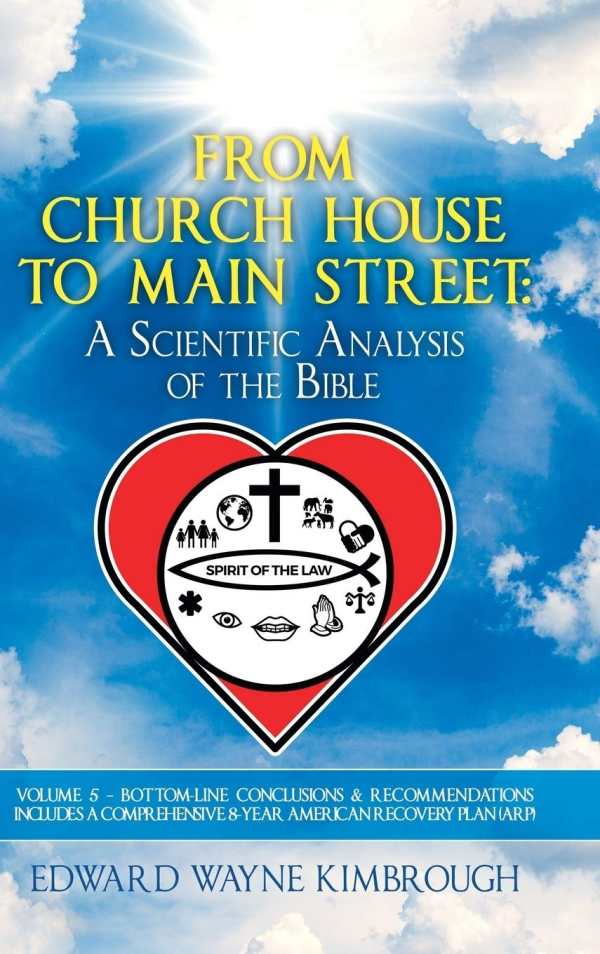
From Church House to Main Street
A Scientific Analysis of the Bible: Volume 5: Bottom-Line Conclusions and Recommendations
The theology-based suggestions in From Church House to Main Street represent a hopeful vision for social and political reform.
Edward Wayne Kimbrough’s theological text From Church House to Main Street makes ample suggestions for improving the world.
From the book’s perspective, America’s politics and society are in a sad state. As a solution, the book proposes logical and biblical means of addressing the nation’s problems, from homelessness to monetary policy. Its systematic theological exploration of biblical themes, beginning with creation and sin in the Garden of Eden, is used to address contemporary problems and questions, as of how the biblical mandate to “be fruitful and multiply” applies today. Such questions are examined across the book’s five long chapters.
Kimbrough’s proposals include ten overarching principles; these were inspired both by the Hebrew Bible and the New Testament. One calls for honoring the Sabbath, another for remembering the atoning sacrifice of Jesus. The notion that humanity’s “propensity to sin” requires an individual and collective “spiritual attitude of love, humility, and forgiveness” directs much of the work, whose conclusions reflect conservative religious perspectives on sin and redemption. Its is ultimately a hopeful vision that promotes “peace, prosperity, and survival.”
The book covers both scriptural covenants and contemporary cultural and religious commonalities to develop its framework for change. It suggests practical actions for repairing governments, families, and individuals. Every recommendation is made to tie into close biblical readings. Later, an abundance of data is presented, illuminating the specific circumstances and realities of topics like homelessness and LGBTQ+ marriage. But despite its heft, the text is a rambling one, working to cover too much ground in its few sprawling chapters.
Much of the book is structured like series of outlines that begin with questions like “How was the Spiritual Universe Created?” or “Why did God send His Son into the world?” These are followed by Kimbrough’s specific answers, which are repetitive and unwieldy in form. Some of the conclusions are insightful and surprising, as with the book’s take on progressive fiscal policies, which argues for increasing the minimum wage and taking care of the environment. Calls for criminal justice reform draw on the Bible, too: here, a “redemptive process enables human government” to balance justice and mercy. Still, little binds the book’s pieces together; each section is given equal weight.
The theology-based suggestions in From Church House to Main Street represent a hopeful vision for social and political reform.
Reviewed by
Jeremiah Rood
Disclosure: This article is not an endorsement, but a review. The publisher of this book provided free copies of the book and paid a small fee to have their book reviewed by a professional reviewer. Foreword Reviews and Clarion Reviews make no guarantee that the publisher will receive a positive review. Foreword Magazine, Inc. is disclosing this in accordance with the Federal Trade Commission’s 16 CFR, Part 255.
